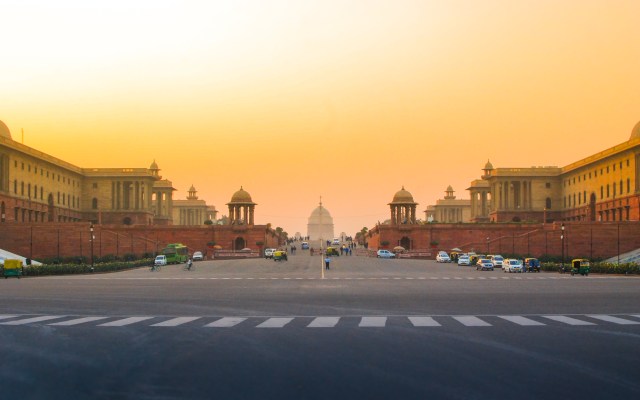India’s central bank wants to ban cryptocurrencies, the government told the parliament on Monday, raising more uncertainty about the future of the nascent virtual digital asset in the world’s second largest internet market.
Nirmala Sitharaman, the minister of finance in India, said Monday that the Reserve Bank of India has expressed concerns about the “destabilising effect of cryptocurrencies on the monetary and fiscal stability of a country” and has recommended “for framing of legislation on this sector,” she said.
“RBI is of the view that cryptocurrencies should be prohibited,” she added.
Formulating any legislation for regulation or banning of crypto will require “significant international collaboration,” she added (PDF). The government stated its reasoning in response to a set of questions raised by Tholkappiyan Thirumavalavan, a member of parliament, in the Lok Sabha, India’s lower house.
“Cryptocurrencies are by definition borderless and require international collaboration to prevent regulatory arbitrage. Therefore any legislation for regulation or for banning can be effective only after significant international collaboration on evaluation of the risks and benefits and evolution of common taxonomy and standards,” she added.
The Financial Stability Board, a body of regulators, treasury officials and central bankers from the Group of 20 economies including India, said earlier this month that it would propose “robust” global rules for cryptocurrencies in October this year. The FSB said crypto assets were predominantly used for “speculative purposes” and didn’t operate in a “regulation free space.”
Sitharaman’s response poses further challenge to the adoption of cryptocurrencies and platforms enabling innovation atop of it in the nation.
India’s move to tax transactions and profits related to crypto trading earlier this year was seen as a move of Indian central bank beginning to embrace the fast-growing nascent technology. But in recent months, Indian banks have sent different signals to the industry players.
The Indian central bank continues to force the hand of banks from engaging with crypto platforms in India, a move that has made on-ramp a nightmare for the firms, people familiar with the matter said.
Coinbase halted trading service in India earlier this year because of “informal pressure” from the Reserve Bank of India, Brian Armstrong, crypto exchange’s chief executive said. Local exchanges and other crypto firms have additionally seen a sharp decline in trading volume in recent months, in part because of the local taxation law.
Internet and Mobile Association of India, an influential 18-year-old lobby group in India, turned its back on advocating for crypto last week citing regulatory uncertainty.
India’s central bank has been consistent with its crypto stance.
In February, a top official of India’s central bank compared cryptocurrency to a “Ponzi scheme” and suggested an outright ban in its sharpest criticism. T. Rabi Sankar, deputy governor of Reserve Bank of India (RBI), told an audience at a banking conference that cryptocurrencies have been “specifically developed to bypass the regulated financial system,” and are not backed by any underlying cash flow.
“We have also seen that cryptocurrencies are not amenable to definition as a currency, asset or commodity; they have no underlying cash flows, they have no intrinsic value; that they are akin to Ponzi schemes, and may even be worse,” he said.
“As a store of value, cryptocurrencies like bitcoin have given impressive returns so far, but so did tulips in 17th century Netherlands. Cryptocurrencies are very much like a speculative or gambling contract working like a Ponzi scheme. In fact, it has been argued that the original scheme devised by Charles Ponzi in 1920 is better than cryptocurrencies from a social perspective.”
Sitharaman reminded that the Reserve Bank of India has been cautioning users, holders and traders of virtual currencies since December 2013.
“Further RBI, vide its circular dated May 31, 2021 has also advised its regulated entities to continue to carry out customer due diligence processes for transactions in VCs, in line with regulations governing standards for Know Your Customer (KYC), Anti-Money Laundering (AML), Combating of Financing of Terrorism (CFT), obligations under Prevention of Money Laundering Act (PMLA), 2002, etc. in addition to ensuring compliance with relevant provisions under Foreign Exchange Management Act (FEMA) for overseas remittances,” she added.
In the wake of the uncertainty, the local ecosystem has seen some talent move outside of the country and a growing number of local entrepreneurs build for the foreign markets and avoid serving customers in India.
